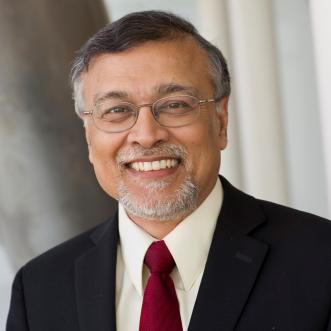




The Sur laboratory develops novel experimental and computational methods for analyzing brain activity, and uses them to study the development, plasticity and dynamics of circuits in the cerebral cortex of the brain.
The developing brain requires a genetic blueprint but is also acutely sensitive to experience and the environment. The brain is shaped by learning and memory, and its function is importantly modulated by internal states such as attention, through dynamic changes in information transmission and processing.
Brain processing is enabled by circuits comprised of excitatory and inhibitory neurons along with astrocytes, which are wired during development by mechanisms of plasticity and change during adulthood by mechanisms of learning and memory. Abnormal wiring of synapses and circuits lies at the core of many brain disorders.
The goal of our laboratory is to define rules of synaptic and circuit plasticity in the developing cortex, and dynamics of activity in the adult cortex during information processing and learned behavior. We aim to utilize this understanding to discover mechanisms of brain disorders and propose novel therapeutics.
Our laboratory studies these topics using state-of-the-art techniques. These include novel approaches for recording the activity and analyzing the function of neurons, astrocytes, synapses and circuits of the cerebral cortex in vivo and in vitro, combined with molecular approaches to study synaptic plasticity and computational approaches to study information processing and dynamics.
Our research is funded by grants from the National Institutes of Health [BRAIN Initiative, NEI, NINDS, NIMH], the National Science Foundation, the Multi-University Research Initiative (MURI), and the Simons Foundation.
Dr. Mriganka Sur is the Newton Professor of Neuroscience in The Picower Institute for Learning and Memory and Director of the Simons Center for the Social Brain at MIT, which he founded after 15 years as head of the MIT Department of Brain and Cognitive Sciences. Dr. Sur studies the organization, plasticity and dynamics of the cerebral cortex of the brain using experimental and theoretical approaches. He has discovered fundamental principles by which networks of the cerebral cortex are wired during development and change dynamically during learning. His laboratory has identified gene networks underlying cortical plasticity, and pioneered high resolution imaging methods to study cells, synapses and circuits of the intact brain. His group has demonstrated novel mechanisms underlying disorders of brain development, and proposed innovative strategies for treating such disorders. His laboratory has discovered core functional rules of inhibitory-excitatory neuronal circuits in the cerebral cortex, and revealed dynamics of information processing across widespread cortical areas. The impact of these discoveries, which answer long-standing questions about computations underlying learning, decision-making and perception-action transformations, ranges from understanding dysregulation in brain disorders to brain architectures for next-generation AI.
Dr. Sur received the B. Tech. degree in Electrical Engineering from the Indian Institute of Technology, Kanpur, and the PhD degree in Electrical Engineering from Vanderbilt University, Nashville. He has received numerous awards and honors, most recently the Krieg Cortical Discoverer Prize, and delivered distinguished lectures world-wide. He has trained over 80 doctoral students and postdoctoral fellows, and received awards for outstanding teaching and mentoring. At MIT, he has been recognized with the Sherman Fairchild and Newton Chairs. He is an elected Fellow of the Royal Society of the UK, the National Academy of Medicine, the American Academy of Arts and Sciences, the American Association for the Advancement of Science, the World Academy of Sciences, the Indian National Science Academy, and the American Institute of Medical and Biological Engineering.
Elie Adam
Postdoctoral Fellow
Vincent Breton-Provencher
Postdoctoral Fellow
Chloé Delepine
Postdoctoral Fellow
Tudor Dragoi
Research Support Associate
Gabrielle Drummond
Graduate Student
Karen Guadalupe Cruz
Graduate Student, BCS
Ming Hu
Postdoctoral Associate
Rafiq Huda
Postdoctoral Associate
Pak Kan Ip
Postdoctoral Fellow
Taylor Johns
Technical Associate
Nhat Minh Le
Graduate Student
Ning Leow
Graduate Student
Keji Li
Postdoctoral Fellow
Marvin Nayan
Postdoctoral Fellow
Vincent Pham
Technical Associate
Eleana Ricci
Program Administrator, SBCS
Jitendra Sharma
Research Scientist
Jennifer Shih
Postdoctoral Fellow
Grayson Oren Sipe
Postdoctoral Fellow
Hiroki Sugihara
Research Scientist
Austin Sullins
Technical Associate
Xin Tang
Research Affiliate
Hayley Tsang
Postdoctoral Fellow
Katya Tsimring
Graduate Student
Murat Yildirim
Postdoctoral Associate